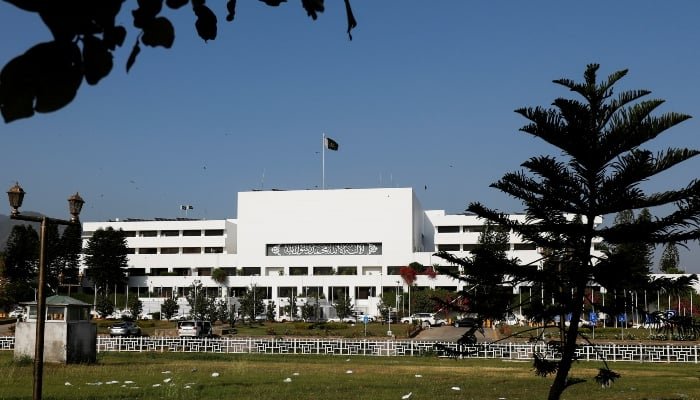KARACHI — The proposed 27th Constitutional Amendment has stirred significant debate among political parties, legal experts, and analysts, with concerns that it could shift the balance of power within Pakistan’s constitution. The government, however, maintains that no amendment will be pushed through without consensus and that democracy will not be compromised.
The amendment is expected to include the creation of a Constitutional Court, possible changes to the National Finance Commission (NFC) Award, and an amendment to Article 243. While the Pakistan Peoples Party (PPP) confirmed that Prime Minister Shehbaz Sharif sought their support, opposition leaders and constitutional lawyers fear it may weaken the gains of the 18th Amendment.
constitutional court,PPP Chairman Bilawal Bhutto-Zardari acknowledged that the prime minister had approached the party for support. Meanwhile, Prime Minister’s Adviser on political affairs, Senator Rana Sanaullah, dismissed claims of controversy, saying discussions over the amendment have been ongoing for months. He emphasized that all stakeholders will be consulted and that no step will endanger democracy. He added that there is broad agreement on the need for a Constitutional Court, which he believes will handle matters more effectively.
However, not everyone shares this optimism. PTI Senator Barrister Ali Zafar accused the government of being dishonest about its intentions, warning that the proposals could alter presidential powers and the NFC, ultimately undermining provincial autonomy achieved under the 18th Amendment.
Minister of State for Law and Justice, Barrister Aqeel, stated that discussions are ongoing, but no formal work has begun. He clarified that amending Article 243 would constitutionally recognize the army chief’s field marshal title and that civil society input will be sought before any final draft.
constitutional courtLegal experts, however, have voiced serious concerns. High Court advocate Hassan Abdullah Niazi warned that the amendment could compromise judicial independence, allow executive members to act as judges, weaken provincial autonomy, and increase military influence. He argued that creating a Constitutional Court separate from the Supreme Court could lead to duplication of judicial structures and open the system to political influence.
PILDAT President Ahmed Bilal Mehboob noted that the amendment appears to carry forward unfinished issues from the 26th Amendment. While he sees potential benefits in establishing a Constitutional Court, he expressed concerns about reforms to the Election Commission and the possibility of weakening provincial revenue shares.
Barrister Ali Tahir cautioned that the proposals could fundamentally alter Pakistan’s constitutional structure, especially if executive magistracy is reinstated and judge transfers fall under executive control. Such changes, he said, could undermine judicial independence and entrench civil-military imbalances.
InSupreme Court advocate Hafiz Ehsaan Ahmad Khokhar suggested a broad national dialogue involving all political parties and provincial governments. He argued that a Constitutional Court could improve efficiency by resolving intergovernmental disputes, clarifying jurisdiction, and reducing the Supreme Court’s workload. On Article 243, Khokhar recommended codifying tenure limits, reappointment conditions, and transparent procedures for the appointments of military chiefs.
Overall, while some see potential benefits, experts warn that building consensus on such a significant amendment will take time, and any hasty action could disrupt Pakistan’s constitutional framework.
#PakistanPolitics #27thAmendment #ConstitutionalCourt #JudicialIndependence #18thAmendment #PakistaniLaw







